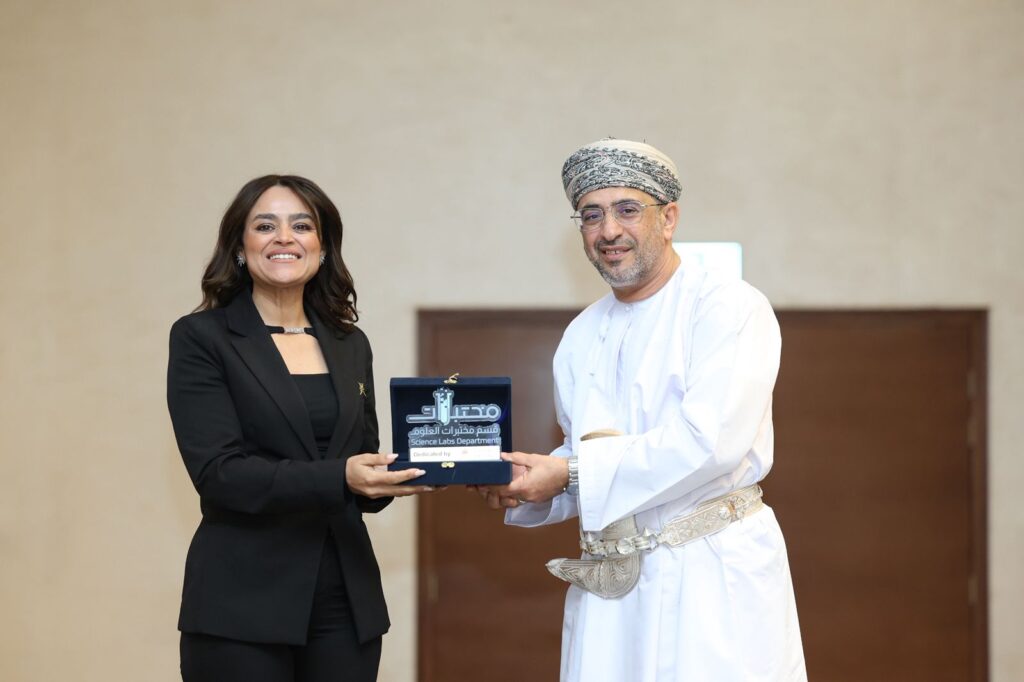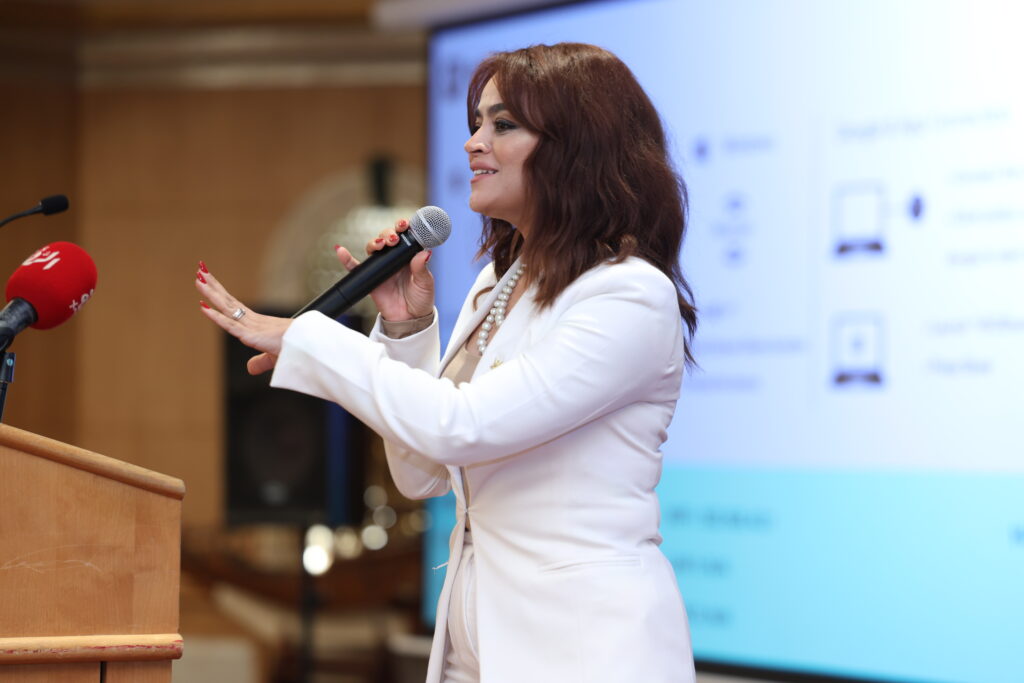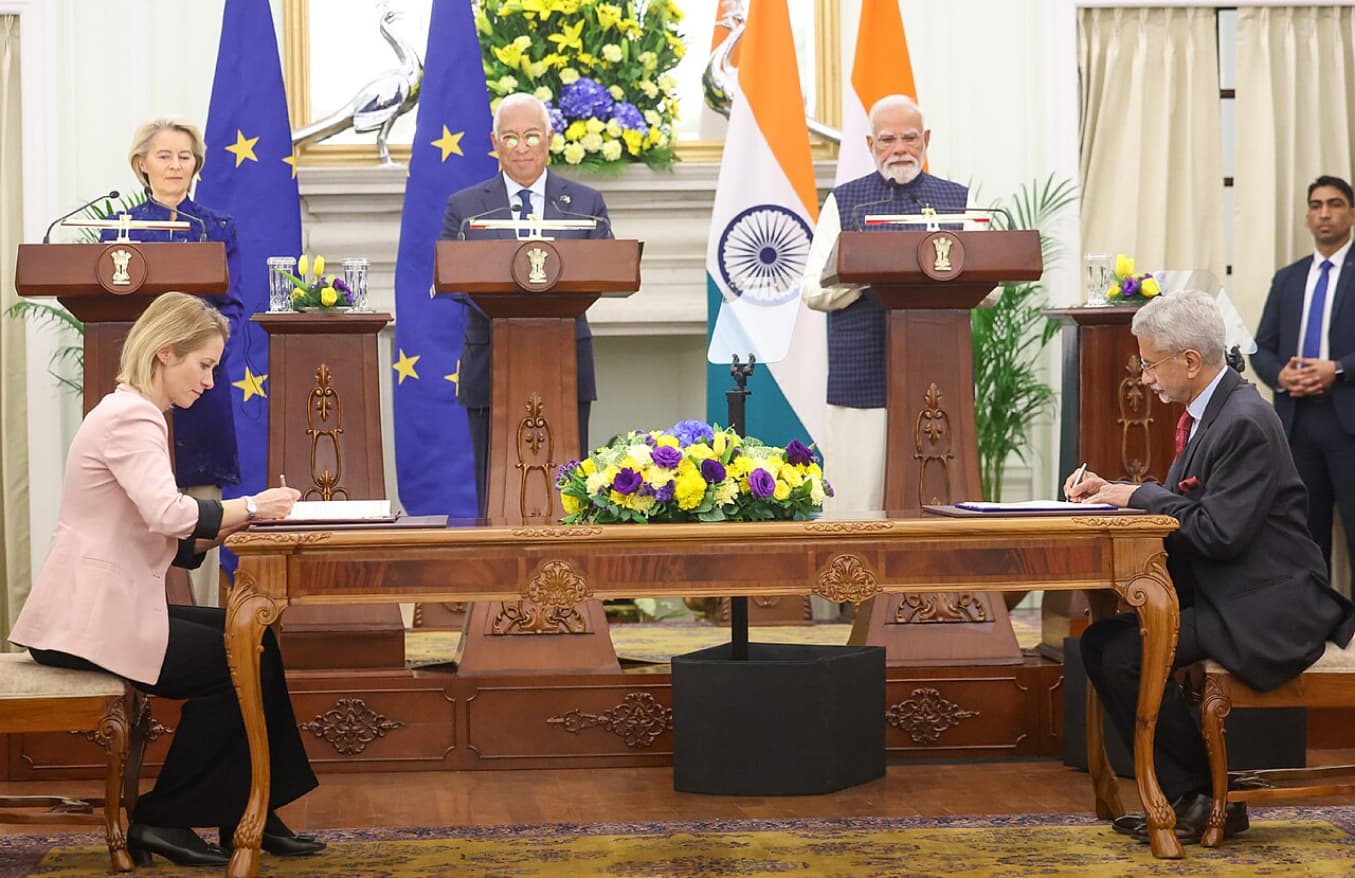In the sprawling landscape of career transitions, few stories are as compelling as Sarah Chortani’s evolution from ecotechnology student to Oman’s leading voice in sustainable tourism. What began as an unexpected professional detour three years after graduation has blossomed into a transformative mission that bridges environmental stewardship with authentic cultural experiences.
“I actually studied ecotechnology and never imagined I would end up in the tourism sector,” Sarah reflects on her unconventional path. “But once I stepped in, I never looked back.” This pivotal moment would prove to define not just her career trajectory, but her understanding of tourism as a powerful catalyst for environmental and social good.
The realization came gradually but decisively. Sarah discovered that tourism could serve as more than entertainment; it could be a platform to showcase nature’s beauty and cultural richness while promoting sustainability and responsible practices. Her background in ecotechnology suddenly found new purpose as she began merging environmental knowledge with creating meaningful travel experiences.
“It allowed me to merge my background in ecotechnology with creating meaningful experiences for travelers, ensuring that what we showcase today will still be preserved for the generations to come,” she explains. This philosophy would become the cornerstone of her approach to sustainable tourism development.
BUSINESS ACUMEN MEETS ENVIRONMENTAL PASSION
Sarah’s foundation in business administration provided the practical framework that would prove essential in navigating the complex tourism ecosystem. The discipline taught her strategic planning, financial management, and team building skills that became invaluable when coordinating projects involving multiple stakeholders across hotels, guides, and government entities.
“My background in business administration has shaped my approach to leadership in a very practical and results-driven way,” Sarah notes. This systematic approach allows her to manage complex tourism projects efficiently while maintaining focus on broader sustainability objectives.
The business administration background instilled confidence in making data-driven decisions while preserving space for creativity and adaptability. In an industry characterized by constant change and seasonal fluctuations, this balance between analytical rigor and flexible thinking has proven crucial to her success.
Her leadership style emphasizes clear processes, measurable goals, and ensuring every team member understands their role in delivering exceptional guest experiences. This systematic approach has enabled her to build strong, motivated teams capable of executing complex sustainable tourism initiatives across diverse cultural and environmental contexts.
DEFINING MOMENTS IN SUSTAINABLE TOURISM
Two pivotal projects crystallized Sarah’s passion for sustainable tourism and shaped her understanding of its transformative potential. The first involved promoting eco-friendly experiences in Oman’s remote natural areas, where she witnessed firsthand the delicate balance between tourism development and environmental protection.
“Being on the ground, I saw firsthand how thoughtful tourism could provide income for local communities while protecting the environment,” Sarah recalls. This direct experience demonstrated that sustainable tourism was not merely theoretical but could create tangible benefits for both conservation and community development.
The second defining project focused on cultural preservation through tourism, involving collaboration with artisans, small farmers, and local guides. Developing itineraries that incorporated these cultural elements revealed tourism’s potential to preserve traditions that might otherwise disappear under modernization pressures.
“Seeing travelers connect with these traditions, and knowing our work helped keep them alive, made me realize that sustainable tourism isn’t just about nature—it’s also about people and heritage,” she explains. This insight expanded her understanding of sustainability beyond environmental concerns to encompass cultural preservation and community empowerment.
These experiences convinced Sarah that responsible tourism could serve as a force for positive change, creating a framework that would guide her future initiatives and advocacy efforts throughout the industry.
REDEFINING SUSTAINABLE TOURISM BEYOND BUZZWORDS
For Sarah, sustainable tourism transcends marketing terminology to represent genuine responsibility toward destinations and communities. Her definition encompasses creating travel experiences that bring joy to visitors while protecting environments, respecting local cultures, and ensuring communities receive genuine benefits from tourism development.
“For me, sustainable tourism goes far beyond being a marketing term—it’s a responsibility,” she emphasizes. This perspective requires making decisions with long-term consequences in mind, including reducing ecological footprints, supporting local businesses, and preserving traditions threatened by mass tourism development.
Education plays a crucial role in her sustainable tourism model. She believes in helping travelers understand they are temporary guardians of the places they explore rather than passive consumers of destinations. This shift in perspective encourages more responsible behavior and deeper engagement with local cultures and environments.
The ultimate goal of sustainable tourism, in Sarah’s framework, is leaving destinations in better condition than when tourists arrived. This regenerative approach ensures that tourism development contributes positively to environmental conservation, cultural preservation, and community well-being while creating memorable experiences for visitors.
BALANCING PROFITABILITY WITH ENVIRONMENTAL RESPONSIBILITY
Sarah’s approach to balancing profitability with sustainability challenges the conventional wisdom that these objectives are inherently contradictory. Instead, she views them as complementary forces that can strengthen each other when properly integrated into tourism development strategies.
“Balancing profitability with sustainability is about understanding that the two are not opposites—they can, and should, work together,” she explains. Her methodology focuses on designing tourism products that create genuine value for travelers, local communities, and environmental conservation simultaneously.
Building strong partnerships with local suppliers and communities serves multiple purposes in this framework. These relationships reduce operational costs, strengthen supply chains, and ensure economic benefits remain within destinations rather than flowing to external entities. This approach creates more resilient and sustainable tourism models.
Profitability enables reinvestment in sustainable initiatives, whether through training local guides, implementing waste reduction programs, or protecting natural sites. Meanwhile, sustainability ensures the long-term viability of tourism products by preserving the natural and cultural resources that attract visitors.
“In the end, they are two sides of the same coin,” Sarah concludes, reflecting her integrated approach to tourism development that prioritizes both financial sustainability and environmental responsibility.
COMMUNITY-CENTERED SUSTAINABILITY STRATEGIES
Local communities occupy the central position in Sarah’s sustainability strategies, serving not merely as tourism participants but as the foundation upon which authentic and sustainable tourism experiences are built. Her approach recognizes that genuine sustainability requires tangible community benefits and active local participation in tourism development.
“Local communities are at the heart of my sustainability strategies. They are not just part of the tourism experience—they are its foundation,” she explains. This perspective requires involving communities from initial planning stages, listening to their insights, respecting their traditions, and creating meaningful opportunities for participation as guides, artisans, hosts, and service providers.
Community engagement extends beyond economic participation to include empowerment and stewardship development. When communities are genuinely engaged and empowered, they naturally become protectors of their cultural and natural heritage, creating sustainable tourism models that benefit all stakeholders.
Sarah’s philosophy emphasizes building tourism experiences “with” communities rather than “for” them. This collaborative approach ensures authenticity for travelers while providing long-term protection for destinations. The shared ownership that results from genuine community participation becomes the foundation for sustainable tourism success.


“Sustainable tourism isn’t something we ‘do for’ communities—it’s something we ‘build with’ them,” she notes, highlighting the collaborative nature of her community-centered approach to tourism development.
MEASURING IMPACT BEYOND TRADITIONAL METRICS
Sarah’s approach to measuring sustainable tourism impact emphasizes qualitative indicators alongside traditional quantitative metrics, recognizing that the true story of sustainable tourism is told through people and places rather than numbers alone.
Her measurement framework examines how much tourist spending remains within local communities, the number of local jobs created, and whether families experience tangible improvements in their daily lives because of tourism development. These indicators provide insight into tourism’s genuine economic impact at the community level.
Environmental monitoring focuses on practical signs of sustainability including waste reduction, efficient water and energy usage, and preservation of natural areas across tourism seasons. Cultural impact assessment examines whether tourism helps traditions survive and thrive, and whether local artisans, farmers, and storytellers feel proud to share their heritage with visitors.
Traveler feedback provides crucial qualitative data about tourism impact. When guests report learning about sustainable living or forming genuine connections with local people, these outcomes demonstrate tourism’s educational and cultural exchange potential.
“When guests tell me they’ve learned something new about living sustainably—or that they’ve formed a genuine connection with the people they met—that’s the kind of ‘metric’ that reminds me why we do this work,” Sarah reflects, emphasizing the importance of transformative travel experiences.
NAVIGATING LEADERSHIP AS A WOMAN IN TOURISM
Sarah’s experience as a woman leader in the tourism sector reflects both the challenges and opportunities that come with breaking traditional boundaries in a male-dominated industry. Her journey has required resilience, strategic communication, and building strong support networks while maintaining authenticity in her leadership style.
“Being a woman leader in the tourism sector has been both challenging and rewarding,” she acknowledges. The industry’s traditional male dominance, particularly in certain regions, has required her to work harder to prove expertise and earn respect. Ideas have been questioned more rigorously, and breaking through traditional mindsets has required persistent effort.
These challenges transformed into opportunities for growth and innovation. The obstacles pushed her to develop resilience, sharpen communication skills, and build strong networks of support with other women and allies in the field. Leading with empathy and collaboration created powerful spaces for innovation and growth.
Her gender provides unique perspectives that strengthen her leadership approach, particularly in sustainability initiatives. Nurturing and long-term thinking align naturally with sustainable tourism development, enabling her to inspire change not only within her organization but across the broader industry.
“Being a woman also gives me a unique perspective—especially in sustainability—because nurturing and long-term thinking are values I naturally bring to my leadership style,” she explains, demonstrating how perceived challenges can become distinctive strengths.
INFLUENCING NATIONAL TOURISM POLICY
Sarah’s role on the tourism committee provides a platform for advocating responsible and sustainable tourism at the national level, where she serves as a bridge between industry realities and policy-making processes. Her position enables her to bring practical insights from field experience to inform policies supporting both economic growth and environmental protection.
“Serving on the tourism committee gives me a unique platform to advocate for responsible and sustainable tourism at a national level,” she explains. Her advocacy focuses on ensuring that voices of local communities and smaller businesses are heard in policy discussions, promoting tourism development that benefits diverse stakeholders rather than concentrating advantages among a few large operators.
Through her committee role, she influences policies encouraging innovation, investment in eco-friendly infrastructure, and education around sustainability for both tourism operators and travelers. Her goal involves creating a tourism sector that is resilient, inclusive, and capable of preserving Oman’s natural and cultural heritage for future generations.
The policy influence extends beyond regulatory frameworks to include shaping national tourism strategies that align with Oman’s Vision 2040 goals. Her work contributes to positioning Oman as a global leader in sustainable tourism development through integrated approaches that balance environmental preservation, cultural heritage protection, and economic growth.
MENTORING THE NEXT GENERATION
Sarah’s advice to young professionals, particularly women aspiring to leadership roles in tourism and sustainability, emphasizes the importance of vision, persistence, and authentic leadership. Her mentoring approach recognizes the unique challenges facing emerging leaders while highlighting the industry’s tremendous potential for those with passion and dedication.
“My advice to young professionals, especially women, aspiring to lead in tourism and sustainability is simple: believe in your vision and never underestimate the power of persistence,” she counsels. Her guidance acknowledges that the industry presents challenges while emphasizing its rewards for dedicated and passionate individuals.
Continuous learning forms the foundation of her advice, whether through formal education, hands-on experience, or mentorship relationships. She encourages emerging leaders to speak up, share ideas, and take calculated risks while surrounding themselves with supportive people who inspire and challenge growth.
Authenticity and empathy represent core leadership qualities that Sarah emphasizes in her mentoring. She believes that unique perspectives constitute individual strengths rather than limitations, particularly for women entering traditionally male-dominated sectors.
“Most importantly, lead with authenticity and empathy. Your unique perspective is your strength. The future of sustainable tourism needs leaders who care deeply about people and the planet—and that’s where you can truly make a difference,” she concludes, highlighting the essential role that caring leadership plays in sustainable tourism development.
POSITIONING OMAN AS A GLOBAL SUSTAINABLE DESTINATION
Oman’s positioning as a global leader in sustainable tourism reflects strategic alignment with Vision 2040 goals through integrated approaches that balance environmental preservation, cultural heritage protection, and economic growth. The country’s development strategy emphasizes responsible tourism that benefits local communities while protecting natural and cultural resources.
Key initiatives include developing eco-friendly accommodations such as licensed eco-lodges, implementing pioneering projects like the Yiti Sustainable City focused on carbon neutrality, and investing significantly in sustainable tourism infrastructure. These developments demonstrate Oman’s commitment to creating tourism experiences that minimize environmental impact while maximizing community benefits.
International engagement plays a crucial role in Oman’s sustainable tourism positioning. The country actively participates in global platforms to showcase unique natural and cultural attractions while reinforcing its commitment to responsible tourism development. This international presence helps establish Oman’s reputation as a destination that takes sustainability seriously.
“Oman is actively positioning itself as a global leader in sustainable tourism by aligning its development efforts with the goals of Vision 2040,” Sarah explains, highlighting the strategic nature of the country’s approach to sustainable tourism development and its commitment to long-term environmental and cultural preservation.
EMBRACING GLOBAL ECO-TOURISM TRENDS
Current global trends in eco-tourism particularly excite Sarah because they reflect growing traveler desire for meaningful, authentic experiences that connect visitors with local communities and natural environments. This shift represents a fundamental change in tourism motivations away from passive consumption toward active engagement and learning.
Technology integration in eco-tourism development creates opportunities to enhance environmental protection while improving travel experiences. Smart solutions enable better resource management, reduced environmental impact, and enhanced visitor experiences simultaneously. These technological advances support rather than replace human connections and authentic experiences.
Community-led tourism initiatives represent the most inspiring aspect of current eco-tourism trends for Sarah. When communities take ownership of their tourism development, they create the most authentic experiences while ensuring cultural preservation and equitable benefit distribution.
“What excites me most about eco-tourism today is how travelers want real, meaningful experiences that connect them with local people and nature. Most of all, I’m inspired by communities taking charge of their own tourism—it’s the best way to keep cultures alive and share authentic stories,” she reflects, emphasizing the human element that makes sustainable tourism truly transformative.
POST-PANDEMIC SUSTAINABILITY EVOLUTION
The pandemic fundamentally shifted traveler attitudes toward sustainability, transforming it from a niche preference into a mainstream expectation. Sarah observes that sustainability has evolved from a “nice-to-have” feature to a “must-have” requirement in travel decision-making processes.
Increased awareness of human impact on environments and communities has created demand for responsible travel options that protect nature and support local economies. This awareness extends beyond environmental concerns to include health, safety, and community well-being considerations that were heightened during the pandemic.
The evolution toward slow travel, smaller groups, and authentic experiences reflects travelers’ desire to minimize environmental footprints while creating more meaningful connections with destinations. This trend supports sustainable tourism models that prioritize quality over quantity in visitor experiences.
“Post-pandemic, sustainability isn’t just a nice-to-have—it’s becoming a must-have in travel. It’s about rebuilding tourism in a way that’s kinder to the planet and more meaningful for travelers and hosts alike,” Sarah explains, highlighting the fundamental shift in tourism expectations and practices resulting from the global health crisis.
PUBLIC SPEAKING AND ADVOCACY MESSAGES
Sarah’s public speaking focuses on empowering individuals to recognize their potential for creating positive impact through responsible tourism choices and actions. Her messages emphasize personal agency and responsibility while highlighting tourism’s transformative potential for communities and destinations.
Her advocacy particularly targets local artisans, encouraging them to continue creating and preserving traditional crafts that carry cultural identity and heritage. She recognizes artisans as crucial guardians of cultural authenticity and works to ensure tourism creates markets for their products while preserving traditional techniques and meanings.
Young guides receive special attention in her speaking engagements as she inspires them to become proud ambassadors of their homelands. Her message emphasizes the importance of sharing stories and heritage with passion and pride, recognizing guides as crucial interpreters of local culture and environment for visitors.
“In my public speaking, I focus on raising awareness about the incredible power each person has to act responsibly and make a positive impact through tourism. For me, tourism is not just about visiting places—it’s about empowering people to celebrate and protect their own unique identities,” she explains, highlighting the empowerment focus that characterizes her advocacy work.
COLLABORATIVE FRAMEWORKS FOR SUSTAINABLE TOURISM
Effective collaboration between private sector, government, and NGOs in sustainable tourism requires building strong, transparent partnerships based on shared objectives and complementary strengths. Sarah’s approach emphasizes the importance of open communication and regular dialogue to align efforts and avoid duplication of resources and initiatives.
Joint initiatives leverage the unique capabilities of each sector: private companies bring innovation and financial resources, governments provide policy support and regulatory frameworks, while NGOs contribute local knowledge and community connections. This complementary approach creates more comprehensive and effective sustainable tourism programs.
Transparency and trust form the foundation of successful collaborative relationships. Partners must share information openly, acknowledge different perspectives and priorities, and work toward common goals while respecting organizational boundaries and capabilities. Regular communication helps maintain alignment and address challenges before they become obstacles.
“The private sector can collaborate more effectively with government and NGOs by building strong, transparent partnerships based on shared goals,” Sarah explains. “By working together, we can design sustainable tourism projects that balance economic growth with environmental protection and social benefit—ensuring long-term success for everyone involved.”
VISION FOR OMAN’S SUSTAINABLE TOURISM FUTURE
Sarah’s long-term vision for Oman’s tourism industry positions the country as a global benchmark for sustainable and innovative travel development. Her vision encompasses tourism that honors rich natural landscapes and cultural heritage while embracing cutting-edge technology to enhance visitor experiences and environmental protection.
The envisioned future includes eco-friendly accommodations, community-led tourism initiatives, and smart infrastructure working together to offer authentic, memorable experiences. Sustainability becomes embedded in every aspect of the industry from initial planning through execution rather than being treated as an additional consideration.
Technology integration supports rather than replaces human connections and authentic experiences. Smart solutions enable better resource management, enhanced visitor safety and comfort, and improved environmental monitoring while preserving the cultural authenticity that makes Oman unique as a destination.
“My long-term vision for Oman’s tourism industry is to become a global benchmark for sustainable and innovative travel,” Sarah explains. “Ultimately, I want Oman to be a place where travelers feel deeply connected, where local communities thrive, and where tourism truly contributes to preserving the country’s unique treasures for generations to come.”
BUILDING A LEGACY OF MEANINGFUL IMPACT
Sarah’s desired legacy centers on establishing tourism as a force for positive change that extends beyond economic growth to encompass environmental stewardship and cultural preservation. Her vision involves creating tourism models that respect natural environments, empower local communities, and inspire travelers to become responsible guardians of visited destinations.
The legacy includes encouraging future leaders, particularly women and young people, to continue advancing sustainable tourism principles with passion and dedication. She recognizes that lasting change requires multiple generations of committed leaders who understand the interconnections between tourism, environmental protection, and community well-being.
A significant milestone in building this legacy is her work on an eco-tourism exhibition, a long-held dream now becoming reality with support from Oman’s Environment Authority as strategic partner. This exhibition represents her vision for elevating eco-tourism to new heights throughout the region.
“The legacy I hope to leave behind is one of meaningful impact—where tourism is a force for good, not just economic growth but also environmental stewardship and cultural preservation,” she reflects. “More than anything, I hope my work encourages future leaders—especially women and young people—to carry forward this vision with passion and dedication. If the next generation can continue what we start, protecting both our planet and our heritage, then I will have succeeded.”
THE FUTURE OF SUSTAINABLE TOURISM LEADERSHIP
Sarah Chortani represents a new generation of tourism leaders who understand that genuine sustainability requires integration of environmental protection, cultural preservation, community empowerment, and economic viability. Her journey from ecotechnology student to tourism visionary demonstrates how unexpected career paths can lead to transformative impact when guided by clear values and commitment to positive change.
Her leadership model emphasizes collaboration over competition, long-term thinking over short-term gains, and community empowerment over external control. These principles create tourism experiences that benefit all stakeholders while preserving the natural and cultural resources that make destinations attractive to visitors.
As the tourism industry continues evolving toward greater sustainability awareness and implementation, leaders like Sarah provide essential guidance for balancing economic objectives with environmental and social responsibilities. Her example demonstrates that sustainable tourism leadership requires both technical expertise and deep commitment to ethical principles.
The future of Oman’s tourism industry, and sustainable tourism globally, will be shaped by leaders who understand that true success is measured not only by visitor numbers and revenue generation but by positive impact on communities, cultures, and environments. Sarah Chortani’s vision and leadership provide a roadmap for achieving this more comprehensive definition of tourism success.






